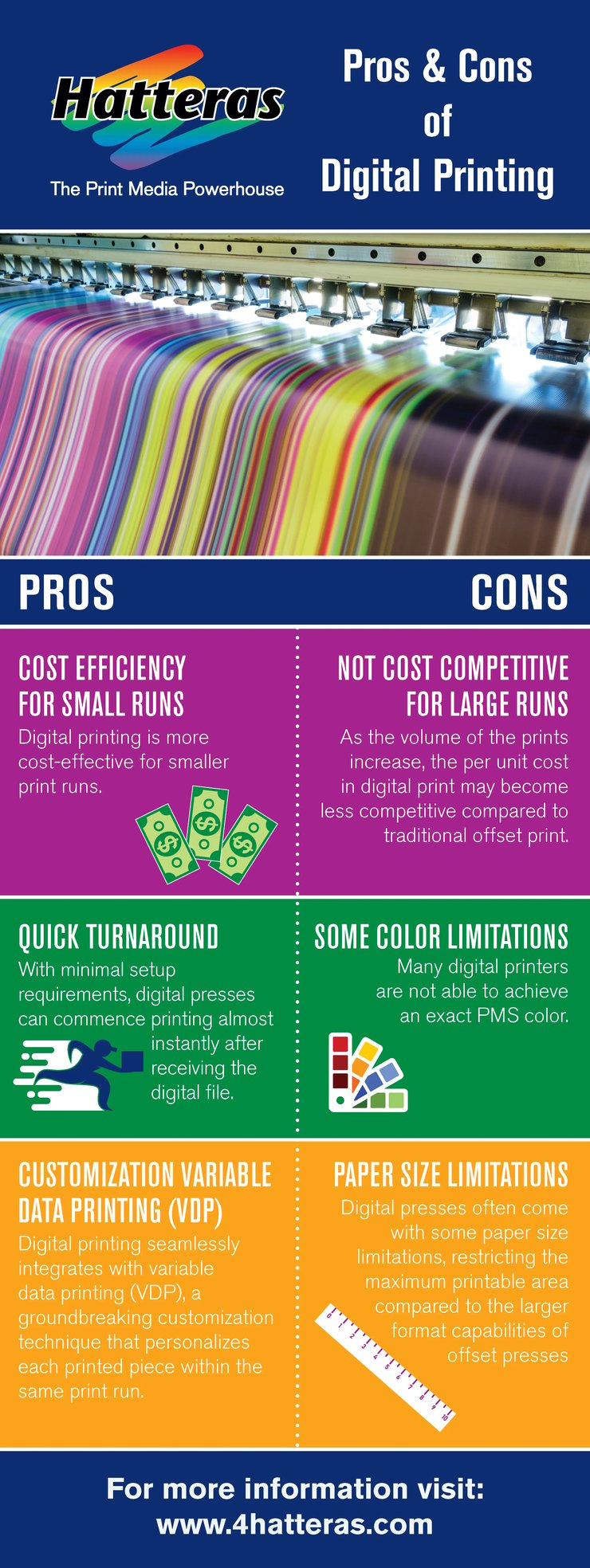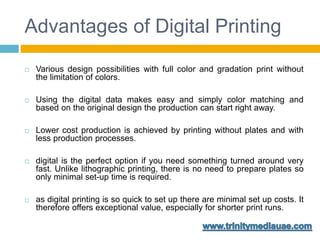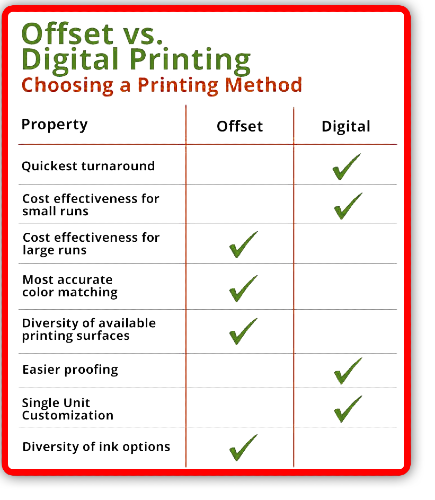Digital Printing - The Facts
Digital Printing - The Facts
Blog Article
6 Easy Facts About Digital Printing Explained
Table of ContentsLittle Known Questions About Digital Printing.Facts About Digital Printing UncoveredDigital Printing Fundamentals ExplainedWhat Does Digital Printing Mean?Indicators on Digital Printing You Should KnowTop Guidelines Of Digital PrintingUnknown Facts About Digital Printing
According to PMMI, electronic printing permits brands and producers to respond promptly to customer demands while improving the supply chain, lowering warehousing price and waste, and enjoying faster time to market. That all noises excellent, however just how does this innovation do all that? The major differentiator of these technologies is that there are no set-up charges and no plates with digital printing.According to Wikipedia, the best distinction in between digital printing and conventional techniques such as lithography, flexography, gravure, or letterpress is that there is no demand to replace printing plates in electronic printing, whereas in these analog printing approaches the plates are repeatedly changed. This leads to quicker turn-around time and reduces cost when using electronic printing.

Not known Facts About Digital Printing
More inventory can indicate more waste in the future. With standard printing techniques, short-run printing is simply not feasible. Since a fantastic layout can make or break your product, electronic printing constantly develops premium, clear and colorful graphics each time. Digital printing on versatile bags includes the bright, lively, and accurate graphics that almost beckon customers to connect and touch them.
Digital printing is the procedure of printing digital-based pictures directly onto a selection of media substratums. There is no demand for a printing plate, unlike with countered printing. Digital data such as PDFs or desktop computer posting data can be sent out directly to the digital printing machine to publish theoretically, image paper, canvas, material, synthetics, cardstock and various other substratums.
Digital printing is faster and with the ability of more detail, 2 factors it's commonly used to publish product packaging, direct marketing flyers, and books or publications. Most electronic printing presses have actually traditionally used toner-based technology and as that technology swiftly evolved, the print high quality matched that of balanced out presses. In current years, inkjet modern technology has simplified electronic print accessibility along with the price, speed and high quality difficulties encountering print providers today.
About Digital Printing
Countered printing is the suitable solution when you need and/or versatile colour, paper and sizing options. Digital Printing. Digital printing is excellent for projects, generally less than 2,000 duplicates, and when you need a fast turn-around. If you are not sure what's best for your task, we will certainly function with you to choose the print method best suited to your task and budget.
Digital printing allows for quick and affordable production without jeopardizing quality, unlike balanced out printing. Electronic printing, with its outstanding shade precision and uniformity, is a game-changer in the industry.
Recognizing these distinctions can help you make an educated decision regarding which method is ideal suited for your printing needs. Countered printing has long been the best selection for high-volume business printing.
Get This Report on Digital Printing
One remarkable advantage of countered printing machine is their capability to deal with a vast array of paper sizes and thicknesses. The countered press can fit different materials, including shiny or textured papers, giving versatility that digital printers might struggle to match. This printing technique relies upon making use of printing plates to transfer the ink onto the paper, making it a prominent choice for top quality prints.
The procedure entails producing plates for each shade made use of in the layout, which can be taxing and pricey upfront. Changes might be needed throughout the print run to keep high quality uniformity with printing machine. Digital printing, on the various other hand, uses a more streamlined strategy contrasted to balance out press. With this approach, ink is used straight onto the paper without the demand for intermediate actions like plate production or rubber blankets.

One significant advantage of digital printing is the elimination of expensive configuration costs that are associated with offset printing. In conventional balanced out printing, each work requires the production of plates, which can be costly and time-consuming.
The Best Strategy To Use For Digital Printing
One more cost-saving element of electronic printing is the capability to print only what you require. Unlike offset printing, where big amounts have to be generated to make the procedure economically feasible, electronic printers use better adaptability. Whether you need a little batch or a solitary copy, electronic innovation enables on-demand printing with no additional costs.
Using typical balanced out printing would need creating a large quantity upfront to accomplish an appropriate device cost per leaflet. By deciding for electronic printing instead, they can publish only the exact number required at a reduced total cost.: An advertising firm desires to run a direct mail campaign targeting various consumer sectors with tailored pamphlets.
One of the key benefits of digital printing for fine print runs is its. Unlike offset printing, which needs the development explanation of plates and configuration time for every work, electronic printers can begin generating prints virtually quickly. This makes them ideal for smaller sized amounts where time is essential.
The Single Strategy To Use For Digital Printing
An additional advantage of digital printing is its capacity to produce individualized marketing products. With, organizations can quickly incorporate individualized material within each printed piece. This permits for targeted messaging that resonates with different segments of their target market. As an example, a business running a direct-mail advertising project can personalize each postcard or pamphlet based upon recipient preferences or demographics.

One of the essential advantages is the improved adaptability and customization alternatives that include digital printing. With electronic printing, making adjustments to layouts or material throughout the manufacturing process is a wind. Unlike standard balanced out printing, where making adjustments can be time-consuming and costly, electronic technology enables quick and very easy changes.
One more advantage of electronic printing is its variable information capacities. This feature enables personalized web content to be published on a mass range without compromising efficiency or top quality. Whether you require to tailor each item with private names, addresses, or various other one-of-a-kind info, variable data printing makes it possible. This degree of personalization can greatly enhance consumer interaction and response rates.
Not known Facts About Digital Printing
Whether you're looking for shiny or matte surfaces, textured papers, or specialty supplies, digital printers can fit numerous preferences. Digital news printing genuinely beams.
Report this page